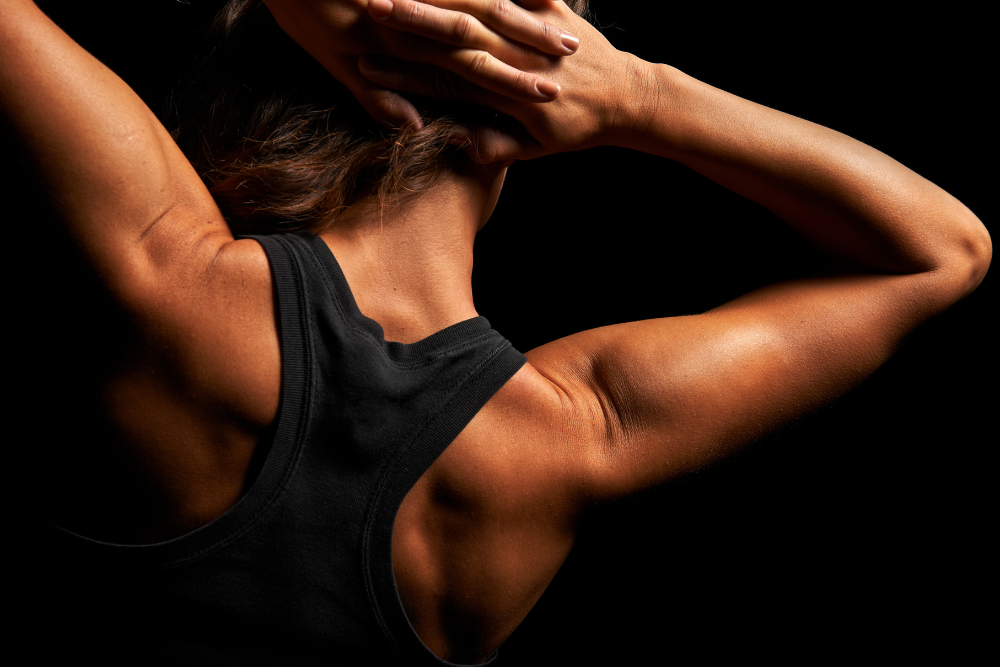Does Dark Chocolate Aid In Muscle Recovery?

Hunter Bennett
What do exercise enthusiasts, elite athletes, and weekend warriors all have in common?
They all exercise hard.
This means that to get the best results from their training, they need to make certain that they recover appropriately. This often means making sure their diet is on point, getting massages if needed, and diving headfirst into a freezing cold ice bath every once and while.
But one recovery method I am sure you haven’t heard about is dark chocolate.
Interestingly, some recent research suggests that it may actually be a pretty good option.
What are the nutritional benefits of dark chocolate?
Let’s dive straight into some dark chocolate benefits.
Dark chocolate is surprisingly dense in several key nutrients, vitamins, and minerals. In fact, a single serving of dark chocolate contains:
- 11 grams of fiber
- 67% of your recommended daily intake of iron
- 58% of your recommended daily intake of magnesium
- 89% of your recommended daily intake of copper
- A whopping 98% of your recommended daily intake of manganese
- A good portion of potassium
- A whole lot of phosphorus
- A good amount of zinc
- And a solid serving of selenium
As an added bonus, this comes with a good serving of healthy fatty acids, and some minor stimulants, such as caffeine and theobromine.
But where it derives most of its benefit is from its polyphenols.
Related Article: Are Plant-Based Protein Drinks Effective for Exercise Recovery?
What are polyphenols?
Polyphenols are a specific type of chemical commonly found in high amounts in natural plant-based foods. There are thought to be more than 8000 known polyphenols found in various foods across the planet, including dark chocolate.
Now, I should note that polyphenols play a very important role in maintaining your health and wellness because once they are in your body, they act as a form of antioxidant. This means that they help your body fight against the nasty oxidative damage caused by free radicals.
See, your body produces free radicals in response to a number of environmental pathogens, such as airborne chemicals and UV radiation (just to name a few). If these are left unchecked, they can run rampant throughout your body, damaging your cells in the process.
This can lead to disease, illness, and may even accelerate aging.
Which is why eating foods rich in polyphenols offers an excellent way of maintaining the health of your body in its entirety – and considering that dark chocolate is one of the most potent sources of polyphenols on the planet, it is a great option (Crozier, 2011).
Does the percentage of dark chocolate make a difference?
We now know that dark chocolate has some obvious health benefits – but that doesn’t mean that all types of dark chocolate are created as equal. As you would know, dark chocolate comes in a number of different percentages, which represents how much of the chocolate is derived from cacao.
So, what percentage of dark chocolate is good for you?
Well, as a general rule of thumb, the higher, the better.
See, the greater the percentage of cacao, the more polyphenols provided per serve. This means that anything over 80% is a great starting point for those looking to eat some dark chocolate for health benefits.
Does dark chocolate improve recovery?
Because of its high polyphenol content, dark chocolate offers some powerful health benefits. These can include a reduced risk of diabetes, cardiovascular disease, Alzheimer’s disease while preventing a host of other age-related declines in health and function.
But is dark chocolate good for muscle recovery?
Well, some recent research suggests that this may, in fact, be the case (Cavarretta, 2018).
This study split a number of elite football athletes into two groups during an intense month of training. One group consumed dark chocolate every day for the entire month, while the other group kept their diet the same as normal.
Interestingly, at the end of the training block, the dark chocolate group saw much higher levels of antioxidant activity throughout their body than the normal group. This coincided with markedly reduced levels of inflammation and much lower levels of muscle damage.
This indicates that the polyphenols in the dark chocolate may also improve the entire muscle recovery process, making it a great option for those who need an extra recovery boost after training.
In short, there were obvious dark chocolate benefits for muscle recovery.
How much dark chocolate do I need to eat to see these benefits?
In this study, the chocolate group simply consumed 40 grams of dark chocolate per day, spilt into two serves of 20 grams (one in the morning, and one in the evening). I should also note the chocolate they consumed was at a very solid 85%, which means it was full to the brim with polyphenols.
So, for those of you interested in trying dark chocolate for recovery, this amount provides a great starting point.
Should dark chocolate be consumed pre or post workout?
As far as recovery goes, you might be wondering if it is best to have dark chocolate pre-workout or dark chocolate after a workout?
And to be honest, the research would suggest both.
The idea is to provide your body with a steady stream of polyphenols throughout the day. This means that you are constantly in a good state of antioxidant activity, which can enhance muscle recovery.
As a result, your best option appears to be to have some in the morning and then some before bed.
What other foods contain polyphenols?
Now, you might be wondering what foods contain polyphenols – I mean, I said above that they are found in many natural plant-based foods. With this in mind, I wanted to give you a great list of some of the best polyphenol-rich foods on the planet:
- Cloves
- Peppermint
- Star anise
- Berries (especially blueberries, blackberries, and strawberries)
- Plums
- Black Currants
- Apples
- Beans
- Nuts (especially hazelnuts, walnuts, and almonds)
- Artichokes
- Chicory
- Red onions
- Spinach
- Soy
- Black tea, green tea, and coffee
- Red wine
So, if you’re not a huge fan of dark chocolate (you do not know what you are missing…) then these foods are another great option. If your diet contains a number of these, you can be pretty confident you are enhancing your muscle recovery capacity.
Endurance vs HIIT and dark chocolate
Last but not least, I wanted to see where thought dark chocolate offers the most benefit – for high-intensity exercise or lower intensity endurance exercise.
Related Article: Ultimate Recovery Tool: Recoup Fitness Cold Roller
Is dark chocolate good for endurance exercise?
As a general rule of thumb, longer duration, lower intensity endurance exercise is less demanding than high-intensity exercise. This means it elicits less muscle damage and requires less time to recover.
In general, this would indicate that dark chocolate is less important on days where you are performing longer distance cardio.
However, the mode of endurance exercise also needs to be considered.
You see, running places the body under a whole lot more load than non-impact activities such as rowing, cycling, and swimming. As a result, it also happens to elicit a whole lot more muscle damage.
So, if running is your punishment of choice, then dark chocolate may offer you a little bit more benefit than if you spend your low-intensity days on the bike or in the pool.
Is dark chocolate good for high-intensity exercise?
Conversely, higher intensity exercise (such as HIIT) is much more demanding in nature. This means more muscle damage, and more recovery demand placed on the body.
With this in mind, if your training includes a lot of HIIT, then dark chocolate may be a very good option to help you recover in time for your next workout. This means that you can constantly be performing at your best every session – which is integral to progression!
Take Home Message
The health benefits of dark chocolate have become common knowledge over the last few years. However, the fitness benefits of dark chocolate are only just now being explored in any great detail – with some rather promising results, I should add.
Most impressive, dark chocolate appears to have some positive effects on muscle recovery, making it a great option to help you get the most out of your training!
References
Crozier, Stephen J., et al. “Cacao seeds are a” Super Fruit”: A comparative analysis of various fruit powders and products.” Chemistry Central Journal 5.1 (2011): 5.
Cavarretta, Elena, et al. “Dark Chocolate Intake Positively Modulates Redox Status and Markers of Muscular Damage in Elite Football Athletes: A Randomized Controlled Study.” Oxidative medicine and cellular longevity 2018 (2018).
You Might Like:














